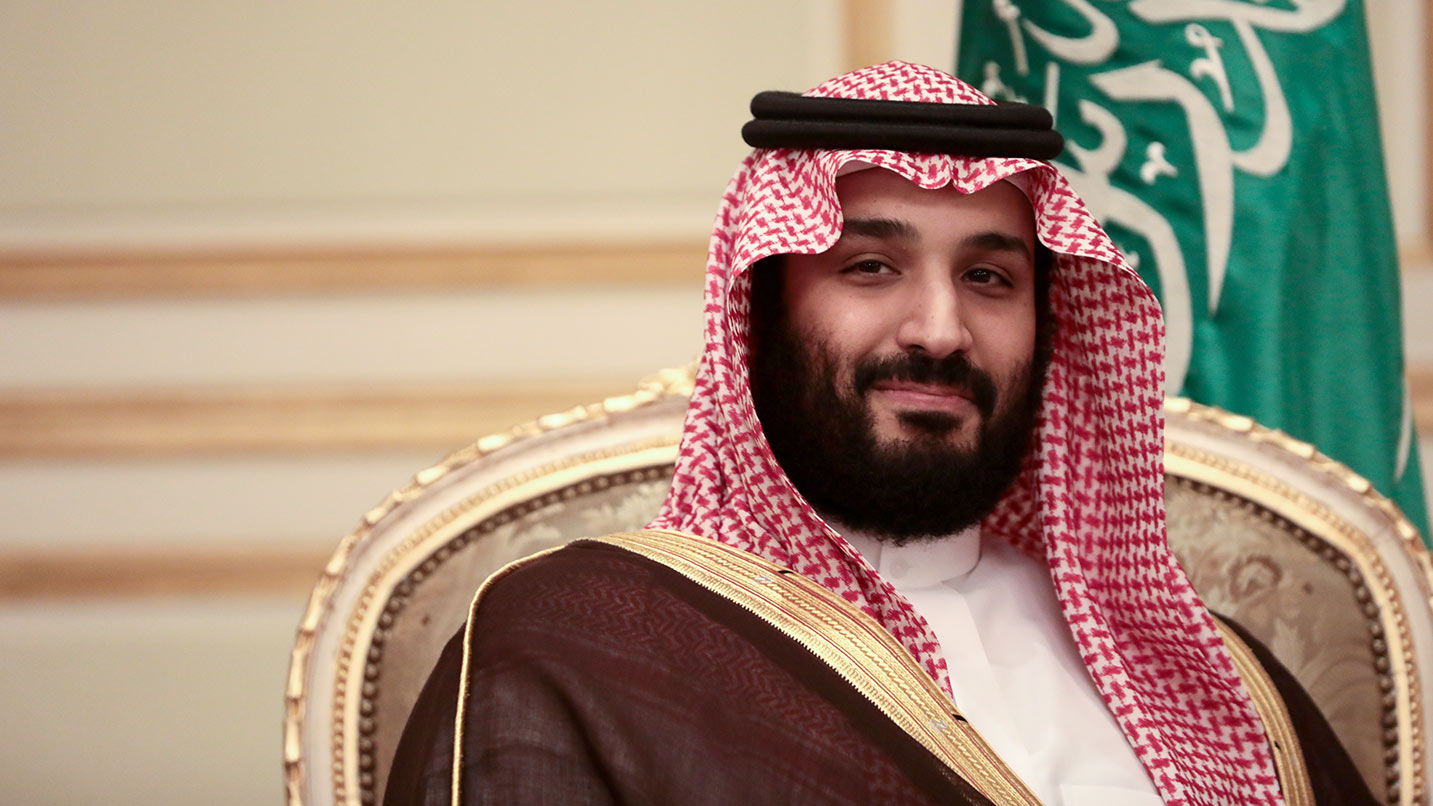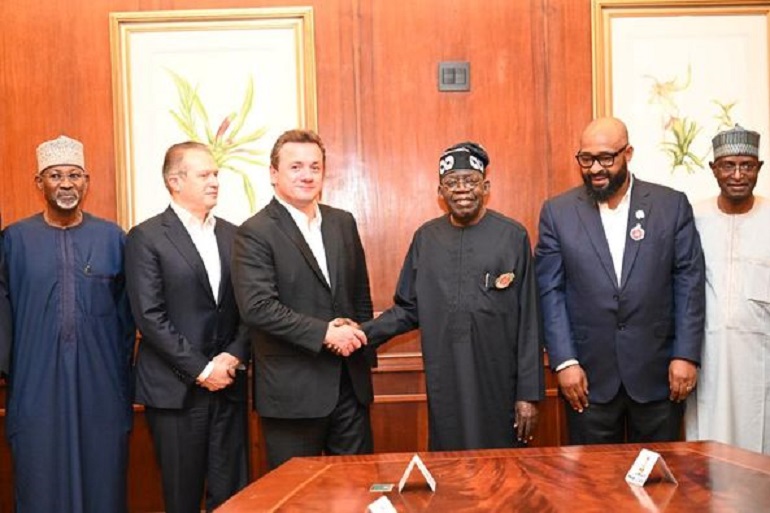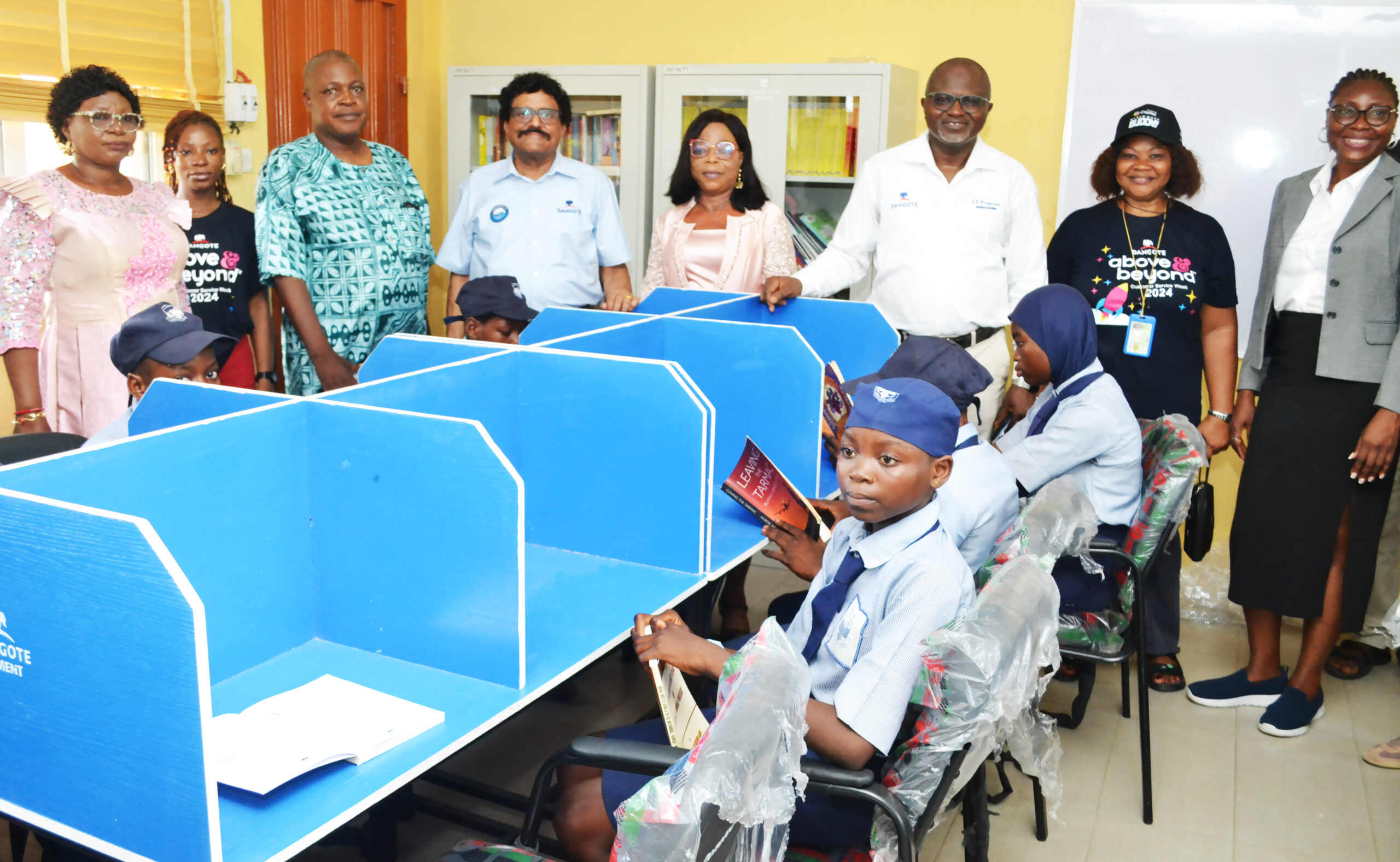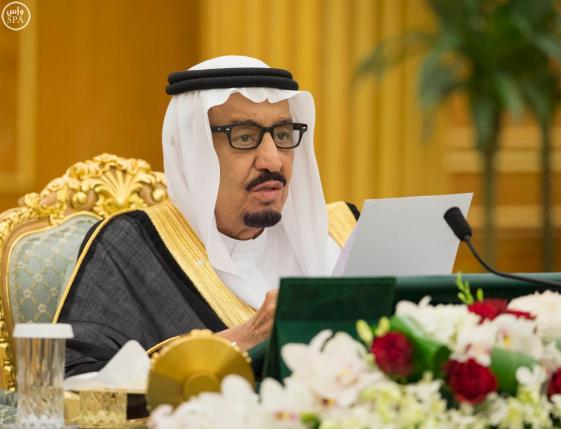Business
Saudi Arabia Is On A High-stakes Mission To Buy The World

In the months before Mohammed bin Salman celebrated his 30th birthday nearly a decade ago, the yet-to-be anointed Crown Prince of Saudi Arabia was gifted a vital key to unlocking the kingdom’s future: full purview of its Public Investment Fund.
. . . Saudi Arabia’s Public Investment Fund, led by Crown Prince Mohammed Salman, is going global.
. . . The sovereign wealth fund is investing in everything from Uber and Blackstone to Heathrow and LIV Golf.
. . . The verdict is out on just how successful it will be in its global investment spree.
Back in 2015, MBS became chairman of the sovereign wealth fund established in 1971 by a former king at a time when it was ready to be transformed. A slow-moving cog of the state no more, PIF was ready to become an investment juggernaut with global presence.
It’s a task the fast-rising royal hasn’t shied away from. PIF, officially led by governor Yasir Al-Rumayyan, has been stepping up its mission to invest in high-profile assets globally in recent years to help fulfill its mission of reducing Saudi Arabia’s economic dependence on oil.
ALSO READ: Dangote Refinery vs NNPCL: Unfortunately, Nigeria needs both companies to thrive
That mission, a fundamental part of an ambitious program called Vision 2030 that MBS is in charge of, depends in part on how successful the PIF is in generating returns from its big bets overseas — and leveraging those bets to build hot new industries at home.
“MBS’ personal ambition is very much to make Saudi Arabia a highly visible and internationally respected post-oil economy,” Steffen Hertog, associate professor at the London School of Economics, told Business Insider. “The PIF is by far his most important vehicle in this endeavor.”
But as PIF spreads its wings, it is becoming increasingly unclear as to just how successful it stands to be beyond the Gulf.
A look at the PIF’s portfolio presents a show reel of some of the most prolific names in global business.
In the tech sector, it has pumped $3.5 billion into Uber, poured $45 billion into SoftBank’s Vision Fund, taken a 60% stake in Tesla rival Lucid, and become majority owner of augmented reality startup Magic Leap.
Beyond that, it has pumped billions of dollars into LIV Golf, led a $415 million takeover of Newcastle United, backed up a Blackstone infrastructure fund with $20 billion and invested in Carnival, the world’s biggest cruise operator. In June, PIF expanded its stake in London’s Heathrow Airport.
Figures published in July by GlobalSWF, a data firm tracking sovereign-wealth-fund activity, found that PIF deployed more capital in the first half of 2024 than all other state-owned investors, which collectively invested close to $100 billion in the six-month period.
According to LSE’s Hertog, PIF’s attraction to high-profile brands isn’t just about making itself more visible to the West. “These for the most part are corporates active in sectors that the PIF and MBS see as key for Saudi Arabia’s domestic economic diversification.”
To make these deals happen, the kingdom has been busy doing a lot of courting.
In February, it backed a two-day conference in Miami, where the likes of Blackstone leader Stephen Schwarzman and Donald Trump’s son-in-law Jared Kushner were billed as speakers. In October, the kingdom will be prepared for the global elite to descend on capital city Riyadh for its “Davos in the desert” investment conference.
The event, which has previously attracted the likes of JP Morgan and BlackRock CEOs Jamie Dimon and Larry Fink, has proven controversial in the past. MBS’s alleged role in the murder of journalist Jamal Khashoggi in 2018, which he denies having involvement in, gave some dealmakers pause for thought.
That said, the world’s corporate elite appear to be looking past the incident as time passes — something the Saudis seem to be aware of. This year’s theme, “Infinite Horizons,” offers a nod to the global scope it has in mind for its future.
For global companies, fund managers, and bankers, Saudi Arabia’s wealth has been a big draw at a critical time. While other investors have exercised caution in the face of a higher interest rate environment, the kingdom has kept its money flowing.
That’s partly because the fund has set a target of $2 trillion in assets under management by the end of the decade, and is racing against the clock to meet the deadline for its ambitious Vision 2030 program.
Saudi Arabia also finds itself locked in a tense rivalry with other economic powerhouses in the region such as the United Arab Emirates, where funds such as Mubadala and G42 have been busy securing their own big international deals. Bragging rights are on the table.
However, while the Saudis prepare to continue flashing their cash abroad, the PIF faces some risks.
For one, the fund has had to learn the hard reality of going big, as a number of its high-profile investments overseas have struggled financially. Earlier this month, for instance, PIF had to plug a funding gap for Lucid by pumping in an extra $1.5 billion.
The electric vehicle maker first raised more than $1 billion from the Saudis in 2018 after PIF’s talks with Elon Musk to take Tesla private fell through, but has struggled with a high burn rate and waning demand for EVs.
PIF has also had to backstop another company. According to filings released in the UK this month, the fund has put $750 million into Magic Leap since the start of 2023, as it struggling to take its immersive reality headsets mainstream.
For Hertog, though companies like Lucid have “fallen on hard times” — and other bets from PIF on the likes of the SoftBank Vision Fund have “indeed not done well” — it is still too early to say how the overall performance will turn out. The fund did swing to an annual profit in 2023 following an $11 billion loss the previous year, Bloomberg reported, though many bets are still in their early days.
“There are inherent risks in investing in new sectors so what matters is not individual failures but the performance of the whole portfolio,” Hertog said.
PIF’s tanglings with political figures are also raising concerns. Donald Trump’s son-in-law Kushner, who started private equity firm Affinity Partners in 2021, received a $2 billion commitment from PIF for its debut fund, with that commitment now facing an investigation by Senate Finance Committee chair Sen. Ron Wyden.
In a letter published in June, the senator raised concerns that PIF and other Middle Eastern funds were “using payments to Affinity executives as a means to influence Kushner and other politically powerful individuals.”
For Abdullah Alaoudh, a director at the Middle East Democracy Center, it seems clear that buying “a lot of influence” — or “whitewashing” as he puts it — is a key part of the fund’s deal-making overseas. If potential partners can gloss over some of its more controversial activities, such as the Kingdom’s war in Yemen, it’ll have an easier time seeing deals through.
As Hertog notes, it’s worth remembering that PIF’s main priority remains its domestic portfolio. “While some domestic investments have been pruned, the fund’s main ambition is domestic diversification,” he said.
Still, Saudi Arabia seems intent on making its mark on the global stage through the PIF. The world will be keeping watch.
The PIF did not immediately respond to a request for comment from BI.
Credit – Business Insider Africa
Business
Tinubu Moves To Transform Tragedy To Prosperity With Livestock Investment

Nigeria’s President, Bola Ahmed Tinubu is of the view that his administration’s renewed focus in driving international and local investments into livestock sector of the agricultural value-chain will end the crisis of farmer-herder clashes, eradicate hunger and poverty in addition to promoting economic prosperity.
President Tinubu said this Thursday in Rio de Janeiro, Brazil at the signing of a Letter of Intent between the Nigerian Government and the JBS S.A, one of the top three largest meat processing companies globally.
“What we are doing right now is that we are solving a problem that afflicted humanity in that part of Africa, clashes between farmers and migrating cows that have caused some life and bloodshed when there is a modern, civilized way to solve those problems and even bring a successful economy out of it.
ALSO READ: JUST IN: Senate Approves Tinubu’s ₦1.77trn Loan Request
“We are trying to turn a situation of tragedy, hopelessness into economic opportunity, see through problems and see the opportunity that is involved in it.”
The Nigerian leader called on the company to see the considerable potentials in what he called the $2.5billion livestock investment opportunities in Nigeria, especially with its huge population and tap into it, given JBS S.A’s globally recognized expertise in the area of guaranteeing food security.
“We’ve heard so much about you in terms of the reputation, and we believe in the partnership we are forging today.
“Food security is extremely important. As we talk right now, there is hunger. However, there is huge hope. And you are one of those hopes that we are looking at.”
President Tinubu told the JBS top executives that Nigeria is ready to do business with them, assuring them of a good return on their investment.
Prior to his visit to Brazil, President had commissioned a team of Nigerian officials and private sector players to take the advantage of the G20 Leaders’ Summit in Rio to conduct a study tour of Sao Paulo, Brazil and explore the opportunities in livestock development, meat processing, seed development and multiplication for key grains.
In his remarks, the Minister of Livestock Development, Idi Muhktar Mahia, who led the delegation, reported to the President that the team embarked on guided, extended and intensive tours of companies on the scale of their global reach, the integrated nature of their operations as well as the deployment of advanced technology. He added that from their interactions with various companies, JBS S.A. was chosen being the second largest meat processing company in the world with the capacity to process 33,000 cattle daily and over eight million birds daily, using advanced zero-waste practices. The company employs over 200,000 people across its subsidiaries in more than 50 countries in the world including United States, Canada, Mexico, Saudi Arabia among others.
Wesley Batista, founder and President of the JBS group, said the company is the largest employer of labour in Brazil with over $79 billion dollars revenue already in year 2024.
“We are glad to work with Nigeria to work together to develop the livestock industry there. We think it’s a good opportunity for our business in Nigeria and Africa as we believe Nigeria can be the center of supply of protein to many countries in Africa. We look forward to working with you. We are almost in December and this year is almost gone. We hope to be in Nigeria as soon as possible,” the founder and Chief Executive said.
Other members of the delegation included Minister of State Agriculture and Food Security Hon. Aliyu Sabi Abdullahi, Co-chairman Presidential Livestock Reform Committee, Professor Attahiru Jega, the Secretary of the Committee, Professor Mohammed Kuta Yahya, and the Chief Executive Officer of Nigerian Investment Promotion Council, Aisha Rimi.
Business
NANTA Champions Nigeria’s Tourism Revival With ₦742m Investment
The National Association of Nigeria Travel Agencies (NANTA) has disclosed an investment of ₦742 million over the past three years to position Nigeria as a premier tourism destination at the annual World Travel Market (WTM) in London.
Speaking in Lagos on Thursday, NANTA’s immediate past president, Mrs. Susan Akporiaye, revealed that the funds were used for exhibition pavilions, magazine publications, and logistical support for members attending the prestigious trade show.
“In three years, NANTA has spent ₦742,226,100 to deliberately put Nigeria on the global tourism map at the WTM. This was achieved with only skeletal support in 2022 and 2023,” Akporiaye said.
READ MORE: Adeleke Represents SW On Ad Hoc Committee on Nat’l Electrification Plan
According to Akporiaye, the association received minimal support in its early years of participation.
In 2022, La Campagne Tropicana Beach Resort and Air Peace contributed by placing advertisements on the Nigerian pavilion and in the association’s magazine. By 2023, Ibom Air joined the effort, supporting NANTA with adverts, while La Campagne Tropicana maintained its support.
The 2024 edition, however, marked a turning point. Akporiaye noted that for the first time, Ibom Air went beyond advertisements to co-exhibit, alongside Eko Hotels and Sabre Travel Network. Their contributions made Nigeria’s representation at WTM more robust and impactful.
“Sabre Travel Network also supported us, so we had their graphics, as well as Ibom Air’s, displayed on our stand. Their contributions made our 2024 participation very grand,” she added.
Akporiaye highlighted that 90% of the funds for WTM participation came directly from NANTA members, underscoring their commitment to Nigeria’s tourism development.
“This shows that we are true patriots, and we deserve national recognition for our efforts,” she said.
NANTA began attending the WTM in 2022 to fill the gap left by Nigeria’s absence from the event for over 10 years.
The association saw the need to promote the country’s tourism potential and create international business opportunities for its members.
“It’s been a wonderful and successful three years that NANTA has participated in WTM, filling the gap left by Nigeria’s absence for over 10 years. We are glad to have handed over the baton of Nigeria’s participation at WTM to the Nigerian government this year,” Akporiaye said.
Through its participation, NANTA has secured affiliations with international tourism boards, organized product training for members, and raised awareness about Nigeria as a destination.
These efforts have also led to partnerships with global airlines and travel boards, fostering significant growth for members’ businesses.
“Our participation at WTM has helped members’ businesses grow significantly. We have formed partnerships with airlines and travel boards worldwide.
“Our greatest achievement at WTM is drawing Nigeria’s attention back to the need to exhibit at the global travel market,” Akporiaye said.
The initiative has also inspired members to expand their horizons into global Meetings, Incentives, Conferences, and Exhibitions (MICE) events.
Business
CSR: Dangote Cement Fuels Education With Support Projects At Lagos Schools

Dangote Cement Plc, a leading cement manufacturer, has donated multi-million Naira educational support projects to secondary schools in Lagos as part of its social investment initiatives.
The company in a statement explained that the move is aimed at complementing the government’s efforts in providing quality and sustainable education in the state.
It was gathered that the projects were commissioned and handed over to various schools in the Ikoyi-Obalende Local Council Development Area, align with the Sustainable Development Goals (SDGs) on education. These goals focus on ensuring inclusive, equitable, and quality education, as well as promoting lifelong learning opportunities for all.
The projects, warmly received by both teachers and students, include 100 dual school desks for Ilado Community Junior High School and Wahab Folawiyo Senior High School, alongside a refurbished and fully equipped Chemistry Laboratory at the Government Senior Secondary School, Ikoyi.
ALSO READ: Dangote Cement Ibese Fetes Host Communities’ Senior Citizens
Also donated were reading tables, chairs, and bookshelves for the library at Government Junior Secondary School, Ikoyi.
A celebration also took place at Falomo Junior High School and Ireti Senior Grammar School, both in Ikoyi, where the company donated 20 brand-new desktop computers to the ICT departments of the schools.
At the event at Government Junior College, Ikoyi, the Group Managing Director of Dangote Cement Plc, Arvind Pathak, explained that social investment is a key part of Dangote Cement’s operations.
He said the company is dedicated to giving back to society and supporting the sustainable development of local communities, especially in areas where it operates.
Pathak’s address was delivered by Wakeel Olayiwola, the Head of Social Performance at Dangote Cement Plc.
He said, “education holds a pivotal role in the development and empowerment of the youths in the country. As a cornerstone for societal advancement, it serves as a critical tool for personal growth, economic development, and national progress. An educated youth population not only fosters individual success but also contributes significantly to the nation’s overall wellbeing.
“At Dangote Cement, we believe that providing quality education to our youth is vital and should not be left solely as the government’s responsibility. Thus, we aim to partner with the government to enhance educational development in this regard.
“The projects we are handing over today are part of our 2024 Corporate Social Responsibility (CSR) programme for selected schools within the neighbourhood of Dangote Cement Plc’s Head Office in Ikoyi, Lagos. These projects were selected based on need assessments in collaboration with the schools.”
As a responsible corporate entity, Pathak noted that Dangote Cement’s commitment to societal wellbeing, with investments in four key areas: Education, Healthcare, Infrastructure, and Economic Empowerment programmes.
“This year, our plants in Ibese, Ogun State; Obajana, Kogi State; Gboko, Benue State; Okpella, Edo State; and our Pan-African operations have launched several social investment projects. These efforts contribute to the quality of life in our host communities and support sustainable national development,” he added.
Pathak thanked the Lagos State Government, the Tutor General/Permanent Secretary, and the school management teams for their collaboration in identifying the schools’ needs and ensuring the timely completion of the projects.
Dr. Idowu Olufunke Oyetola, Tutor General and Permanent Secretary of Education District 3, Lagos State Ministry of Education, who was represented by Bolaji Rotimi Ajayi, Director of School Administration, praised the long-standing partnership with Dangote Cement, noting that the schools selected for the donations were fortunate beneficiaries. “We hope for more collaborations that will positively impact education,” she added.
The principals of the recipient schools expressed their gratitude after the formal handover of the projects.
Odunlami Olubunmi, Principal of Ilado Community Junior High School, Ikoyi, thanked Dangote Cement for the new desks, stating that the donation would significantly improve the learning environment for the students, helping to prepare them for a brighter future.
Bamidele Ayotunde, Principal of the school with the refurbished laboratory, urged other businesses to follow Dangote Cement’s example in supporting local schools, pointing out the positive impact of the laboratory’s renovation on the school’s learning environment.
The Principal of Ireti Senior Grammar School, Ikoyi, whose school received the new desktop computers, described the donation as a positive development and expressed hope for more support in the future.
Pupils also shared their appreciation for the contributions. Abiola Jamaudeen, a lab prefect at Government Senior College, Ikoyi, promised that the laboratory would be used to its fullest potential and well-maintained.
Lawal Rumayzo Abdulsalam, a student at the school, said the new library equipment would foster better reading habits and create a more conducive environment for learning, ultimately preparing them for success. Some students even performed special songs to welcome the Dangote team to their schools.













